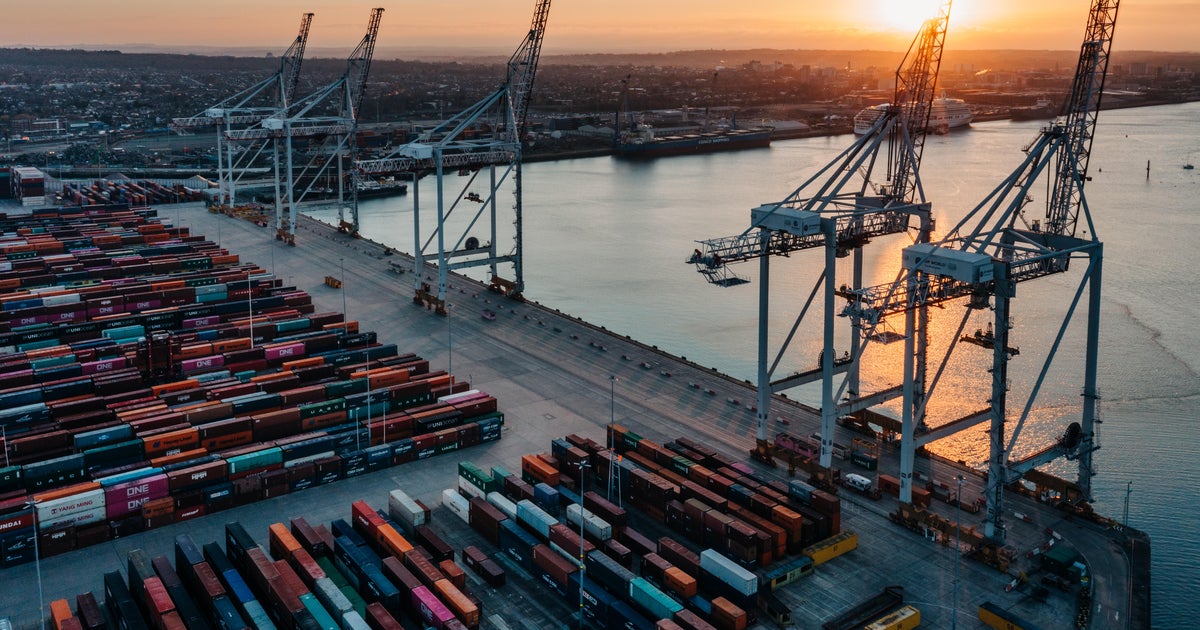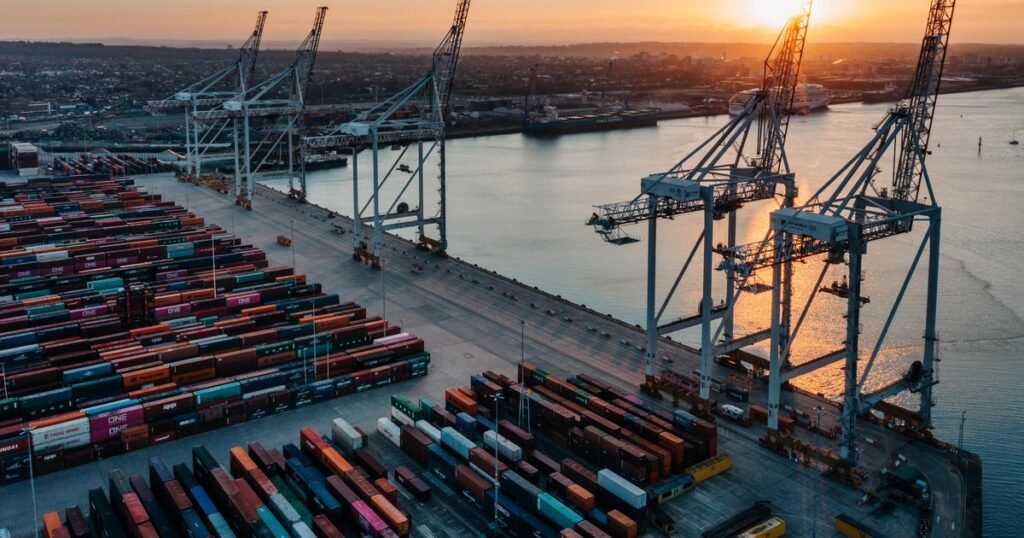
An exemption that allowed low-value parcels shipped to the United States to avoid tariffs ended at 12:01 a.m. Friday, Trump administration officials said.
President Trump signed an executive order suspending what’s known as the de minimis exemption late last month.
At the time, the White House said that would close what it called a “catastrophic loophole” that shippers use to “evade tariffs and funnel deadly synthetic opioids or below-market products” into the U.S.
The exemption applied to parcels valued at $800 or less and let overseas retailers ship inexpensive goods to consumers in the U.S. tax-free.
Mr. Trump “is putting an end to the proliferation of shippers worldwide that, among other things, deceptively exploit the de minimis privilege in an effort to evade duties, inspection, and U.S. law,” the White House said in a fact sheet outlining the new policy.
The president “ending of the deadly de minimum loophole will save thousands of American lives by restricting the flow of narcotics and other dangerous prohibited items, and add up to $10 billion a year in tariff revenues to our Treasury,” White House trade adviser Peter Navarro told reporters Thursday, the Reuters news agency reported.
But there will still be a six-month transition period when postal service shippers can choose to pay a flat duty of $80 to $200 per package depending on the country of origin, Reuters said, citing Trump administration officials.
Mr. Trump ended the de minimis loophole for imports from China and Hong Kong in May. It had allowed retailers such as Shein and Temu to ship ultra low-cost apparel and other goods to U.S.-based consumers at bargain-basement prices. Shipments from China and Hong Kong account for most de minimis shipments to the U.S., according to the White House.
The exemption’s end now applies to all nations.
The de minimis provision was added to the Tariff Act of 1930 several years after the law passed. It was intended to facilitate trade by eliminating the administrative burden of collecting modest import duties on low-cost goods.
The number of low-value parcels entering the U.S. has surged over the past decade. Between 2015 and 2025, that figure jumped from 134 million shipments per year to nearly 1.4 billion. Customs and Border Patrol was processing more than 4 million de minimis shipments to the U.S. daily, the White House said.
Retailers such as Shein and Temu were forced to scramble when the loophole for imports from China and Hong Kong was suspended China-based Temu halted shipments of Chinese goods to American customers and shifted to only selling products to U.S. shoppers that could be sourced from the company’s U.S. warehouses.
An exemption that allowed low-value parcels shipped to the United States to avoid tariffs ended at 12:01 a.m. Friday, Trump administration officials said.President Trump signed an executive order suspending what’s known as the de minimis exemption late last month. At the time, the White House said that would close what it called a “catastrophic loophole” that shippers use to “evade tariffs and funnel deadly synthetic opioids or below-market products” into the U.S.The exemption applied to parcels valued at $800 or less and let overseas retailers ship inexpensive goods to consumers in the U.S. tax-free. Mr. Trump “is putting an end to the proliferation of shippers worldwide that, among other things, deceptively exploit the de minimis privilege in an effort to evade duties, inspection, and U.S. law,” the White House said in a fact sheet outlining the new policy.
The president “ending of the deadly de minimum loophole will save thousands of American lives by restricting the flow of narcotics and other dangerous prohibited items, and add up to $10 billion a year in tariff revenues to our Treasury,” White House trade adviser Peter Navarro told reporters Thursday, the Reuters news agency reported. But there will still be a six-month transition period when postal service shippers can choose to pay a flat duty of $80 to $200 per package depending on the country of origin, Reuters said, citing Trump administration officials. Mr. Trump ended the de minimis loophole for imports from China and Hong Kong in May. It had allowed retailers such as Shein and Temu to ship ultra low-cost apparel and other goods to U.S.-based consumers at bargain-basement prices. Shipments from China and Hong Kong account for most de minimis shipments to the U.S., according to the White House.The exemption’s end now applies to all nations.
The de minimis provision was added to the Tariff Act of 1930 several years after the law passed. It was intended to facilitate trade by eliminating the administrative burden of collecting modest import duties on low-cost goods. The number of low-value parcels entering the U.S. has surged over the past decade. Between 2015 and 2025, that figure jumped from 134 million shipments per year to nearly 1.4 billion. Customs and Border Patrol was processing more than 4 million de minimis shipments to the U.S. daily, the White House said. Retailers such as Shein and Temu were forced to scramble when the loophole for imports from China and Hong Kong was suspended China-based Temu halted shipments of Chinese goods to American customers and shifted to only selling products to U.S. shoppers that could be sourced from the company’s U.S. warehouses.
More from CBS News
Megan Cerullo
Megan Cerullo is a New York-based reporter for CBS MoneyWatch covering small business, workplace, health care, consumer spending and personal finance topics. She regularly appears on CBS News 24/7 to discuss her reporting.
Adblock test (Why?)
Home – CBSNews.com



